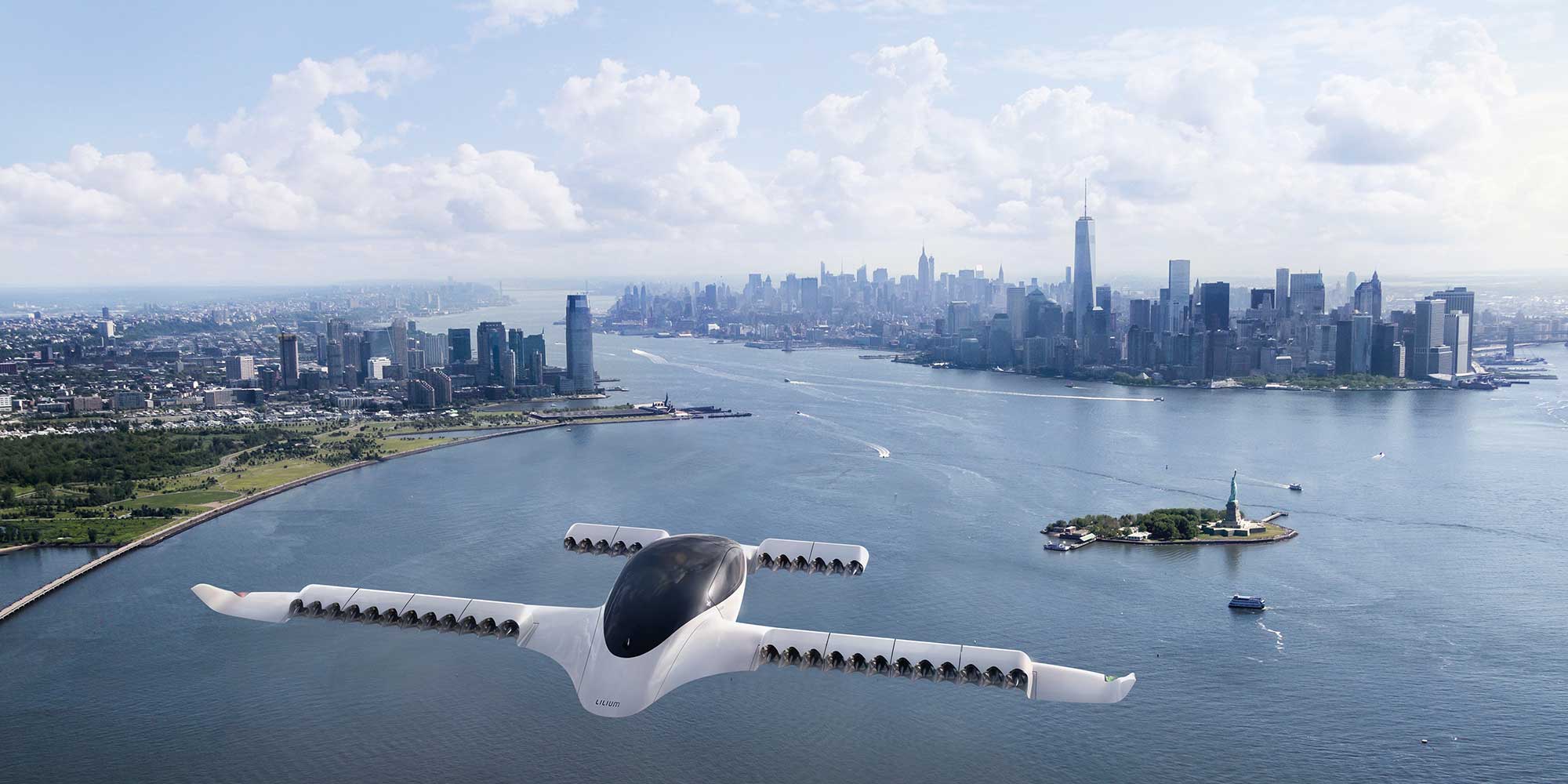In the summer of 2014, an Audi sedan drove down Tampa’s Selmon Expressway without a human driver controlling its wheel. As the vehicle navigated a fake traffic jam, the German automaker became one of the first companies to demonstrate its autonomous vehicle (AV) system on a public highway. For all the press coverage, however, not a whole lot happened. Driverless vehicle tests are relatively boring displays of cutting-edge technology, mostly designed to test on-board sensors and help developers beef up software. The less eventful the demo, the better.
At the time, an Audi spokesperson predicted AVs could be a common sight by the turn of the decade. “We feel that this technology is going to be ready within five years,” the spokesperson said. Six years later, driverless vehicles are still far from road-ready, but Tampa remains a hub for AV activity, partly due to Florida’s laissez faire approach to their regulation (The state is one of just a few that explicitly allows tests on public roads — no permit required). In 2018, autonomous cars took to the Selmon Expressway for another series of road demonstrations. And on a Wednesday in 2019, the highway’s traffic was shut down for automated semi-truck testing.

AVs aren’t the only tech to have taken off in Tampa. Beyond the well-known companies like Sykes, which provides technical support and customer management services, the city boasts a strong cyber security sector and a growing startup scene that’s boosting innovation and attracting out-of-state companies to open local offices and headquarters.
“Tampa is quietly but quickly emerging as an ideal hometown for innovators,” says Lauren Prager, vice president of community engagement at Synapse Florida, a nonprofit that aims to grow Florida’s entrepreneurial ecosystem. Prager emphasizes the strength of collaboration across the bay. “We are a community of doers and makers, building transformative organizations and transforming industries,” she says. Tampa hasn’t always been regarded as a possible hub for tech and innovation in the ways that cities like San Francisco, Boston and Seattle have been. But the city has served as the birthplace for its share of successful technology firms. “Companies that have grown here have been acquired in multibillion-dollar sales, meaning the world is taking notice,” said Prager, pointing to the estimated $1.5-billion acquisition of the Tampa-founded business management software company ConnectWise in March 2019. Meanwhile, local universities attract international talent and recognition for their patent grants and research.
“These benchmarks demonstrate that world-class companies can launch, build and grow right here in Tampa.” Tampa’s homegrown tech companies run the gamut. From Immertec, which provides virtual reality training software for the healthcare industry, to digital wellness platform Peerfit, the companies have respectively raised nearly $12.5 million and $48 million. Alongside these companies are smaller ventures like energy management startup Minimise and transportation software company CēVē. Although Tampa’s tech industry is still largely nascent in its development, Prager sees promise since the city is equipped with the types of features that typically define a successful innovation hub.
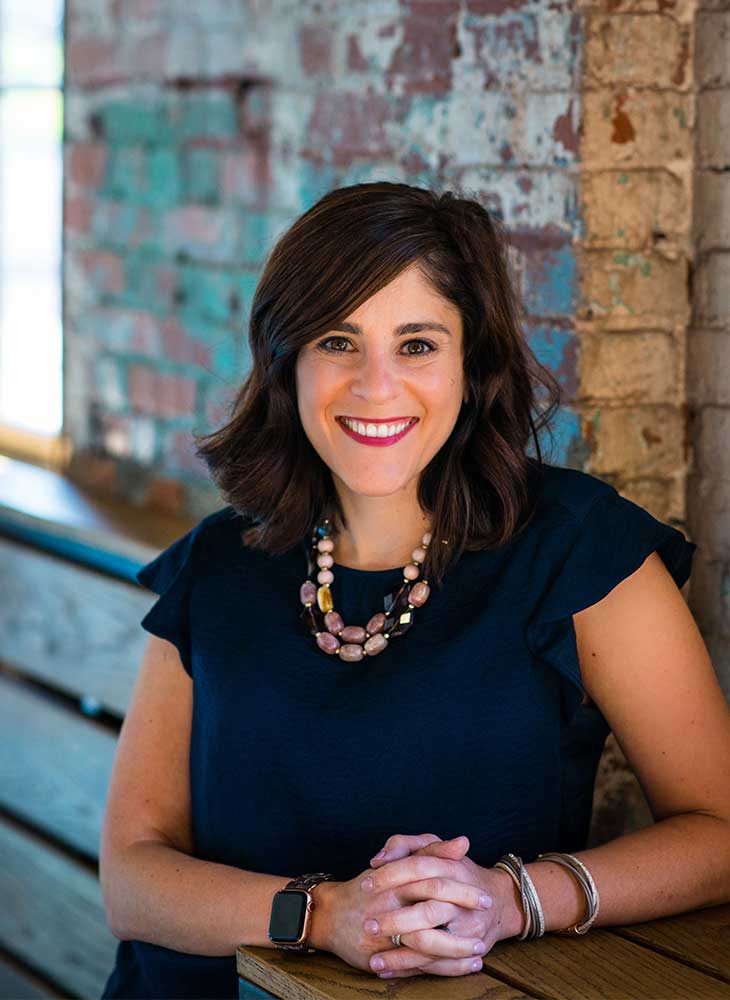
“[We have] world-class educational institutions, dynamic corporations, supportive government leaders, a growing community of engaged investors, and entrepreneurial support organizations serving young and growing companies,” she says. Most important, she adds, is the talent joining the local workforce — from recent graduates to military personnel transitioning to civilian careers.
IF WE BUILD IT, WILL THEY COME?
It’s tough for Tampa to stand up to other national tech hubs when it comes to attracting talent. Last December, the Brookings Institution and the Information Technology and Innovation Foundation published a study that found more than 90% of high-tech job growth between 2005 and 2017 was concentrated into the five metro areas of Boston, San Francisco, San Jose, Seattle and San Diego. In that time, Tampa Bay added 1,789 high-tech jobs, a fraction of the 256,063 created nationwide.
Enticing qualified employees to relocate is one of the biggest hurdles Tampa must overcome in its quest to become a tech hub, according to Farouq Alhourani, professor and chair of the information and technology management department at the University of Tampa. “Availability of a wide diversity of technology skills is one of the challenges that tech companies in Tampa are currently facing,” he says. “Therefore, tech companies need to develop and attract [workers with the needed skills] to the area.”
Attracting talent is a chicken-and-egg type situation. Without tech companies in Tampa, there’s little incentive for potential employees to relocate. Without the established talent, there’s little incentive for companies to open local offices. Through an initiative called Make It Tampa Bay, Hillsborough County and Visit Tampa Bay are hoping to recruit companies and their future employees in equal measure.
Over the past year, a number of notable out-of-state tech companies have chosen to open offices in or relocate to Tampa. Last December, Tampa beat out other up-and-coming tech hubs like Denver and Atlanta as the new home of Boston-based Drift, a marketing technology platform. Information technology training franchiser New Horizons moved its headquarters from Pennsylvania to Tampa in January. And that same month, D.C.-based technology company TheIncLab expanded to Ybor City. TheIncLab opened an “Artificial Intelligence Experience Lab” in The Undercroft, a cybersecurity incubator that launched last summer with the hopes of turning the historic Ybor into a tech industry hotspot.
“At The Undercroft, we’re focusing on the supply side of cybersecurity,” says CEO Adam Sheffield. “How do we support more talent in this community and more people who have passion for the field?”
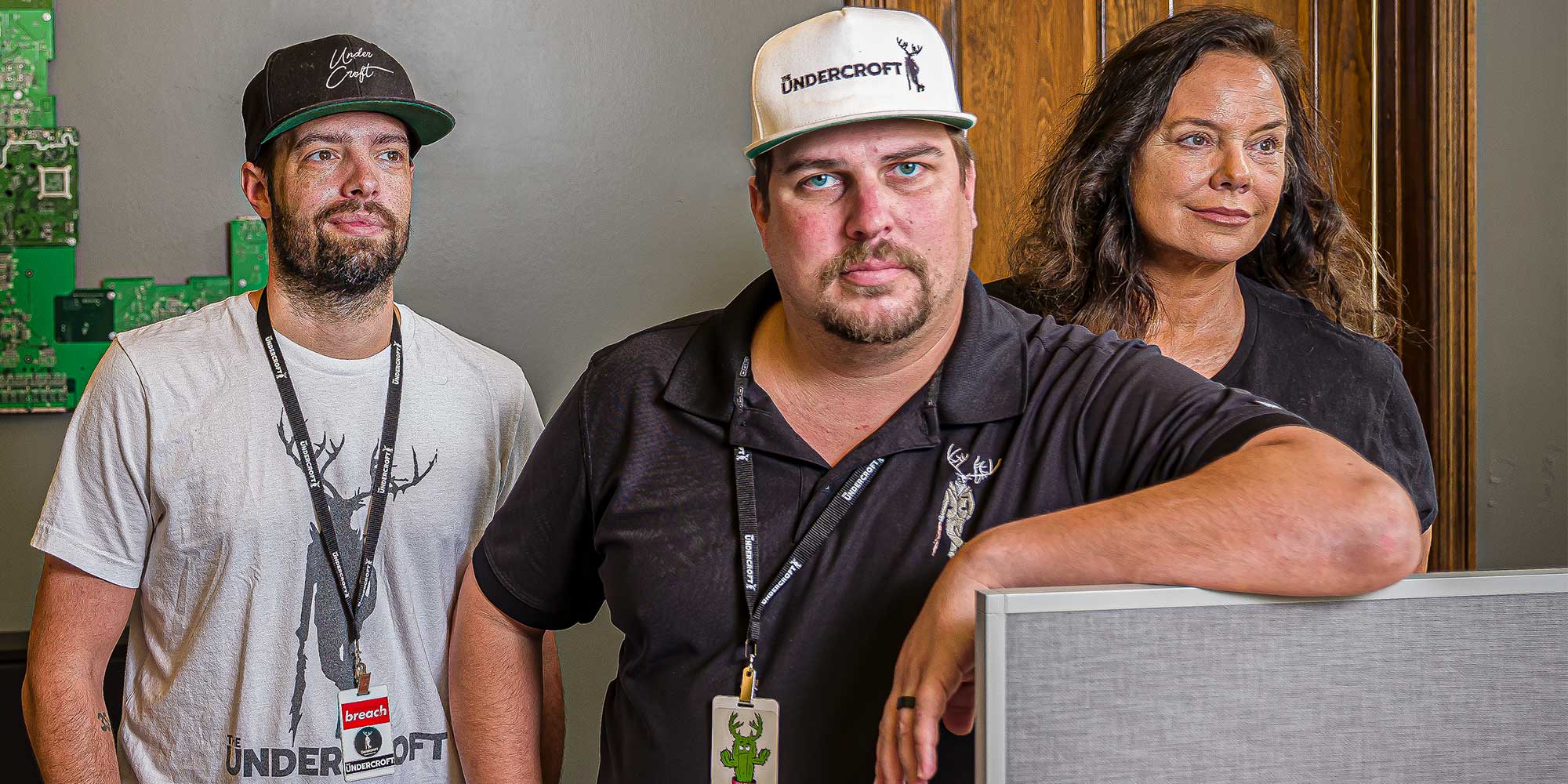
Initially conceived as a co-working type space where startups and members could connect, The Undercroft launched a training program, UC Baseline, in response to layoffs during the coronavirus shutdown. The UC Baseline program is designed to help educate people moving into the cybersecurity workforce or transitioning from traditional IT roles. Ten participants have signed up for the six-week program that offers courses in networking, software, and hardware, according to Sheffield Incubators and accelerators are behind much of Tampa’s recent tech growth, as nonprofits like the Tampa Bay Wave and Embarc Collective offer resources and networking opportunities for local startups, including two recent programs that focus on boosting the representation of women and diversity in the tech industry.
To some, it might seem like a downside that Tampa’s tech and innovation scene is still early in its development. But Embarc CEO Lakshmi Shenoy, who moved to Tampa from Chicago to take on the role, says this offers opportunities for growth not found in more developed markets.
“I was excited to move to Tampa because we are still early in the development of our technology hub identity,” she says. “In more established technology communities, a newcomer has to follow the existing ways of being and doesn’t have an opportunity to make their mark. The formative period we’re experiencing in Tampa is especially appealing for individuals that not only want to make an impact on a company but also our community.”
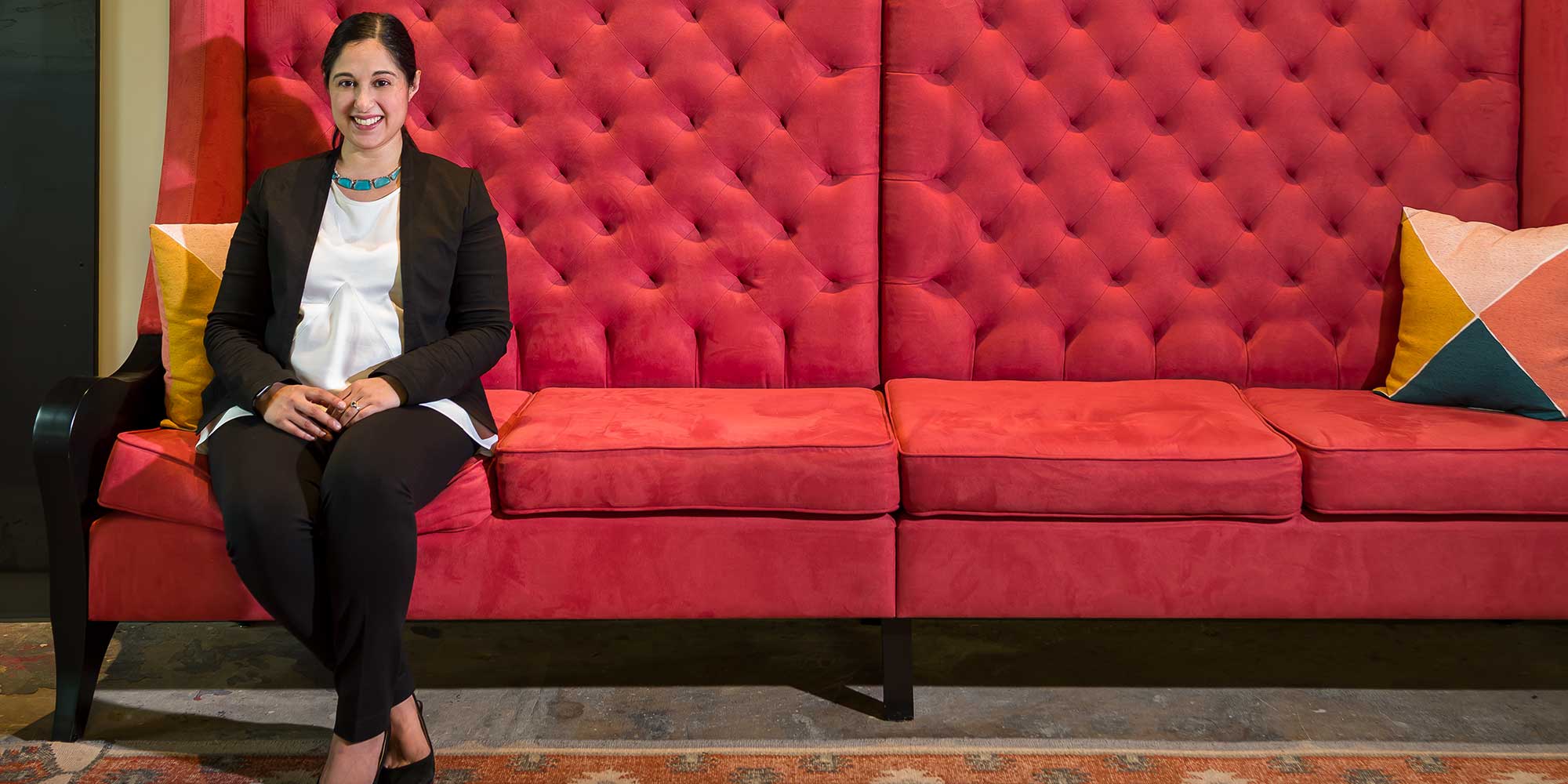
That said, nascency comes with a number of challenges, according to Shenoy. The most obvious among them is the lack of tech ventures and capital to help get startups off the ground. And although Tampa’s lack of tech identity may give innovators a chance to sculpt the identity of the local tech scene, it also makes it more difficult to market the city to outsiders.
“We are not known for a best-in-class industry strength nationally,” she says. “Without a strong brand, it’s difficult to grow the awareness of our capabilities and potential outside the region.”
As Tampa’s private tech scene strives to define itself on the national scale, the city’s public sector has gained national recognition for its integration of technology. In 2015, the U.S. Department of Transportation named Tampa one of four cities to earn a federal grant for connected vehicle pilot programs. The $2.4 million grant awarded to the Tampa-Hillsborough Expressway Authority (THEA) was what turned the Selmon Expressway into an outdoor lab for testing driverless vehicle technology. THEA recently announced it was partnering with Hyundai for the next phase of its connected vehicle pilot.
Tampa aims to blaze trails when it comes to connected vehicles, but the city is also eager to learn from the successes and failures elsewhere, according to Vik Bhide, who leads the city of Tampa’s Smart Mobility Division.
”In my opinion, we’ve done a good job at listening to what’s happening in other cities as far as technology goes and understanding what aspects suit us best,” Bhide says.
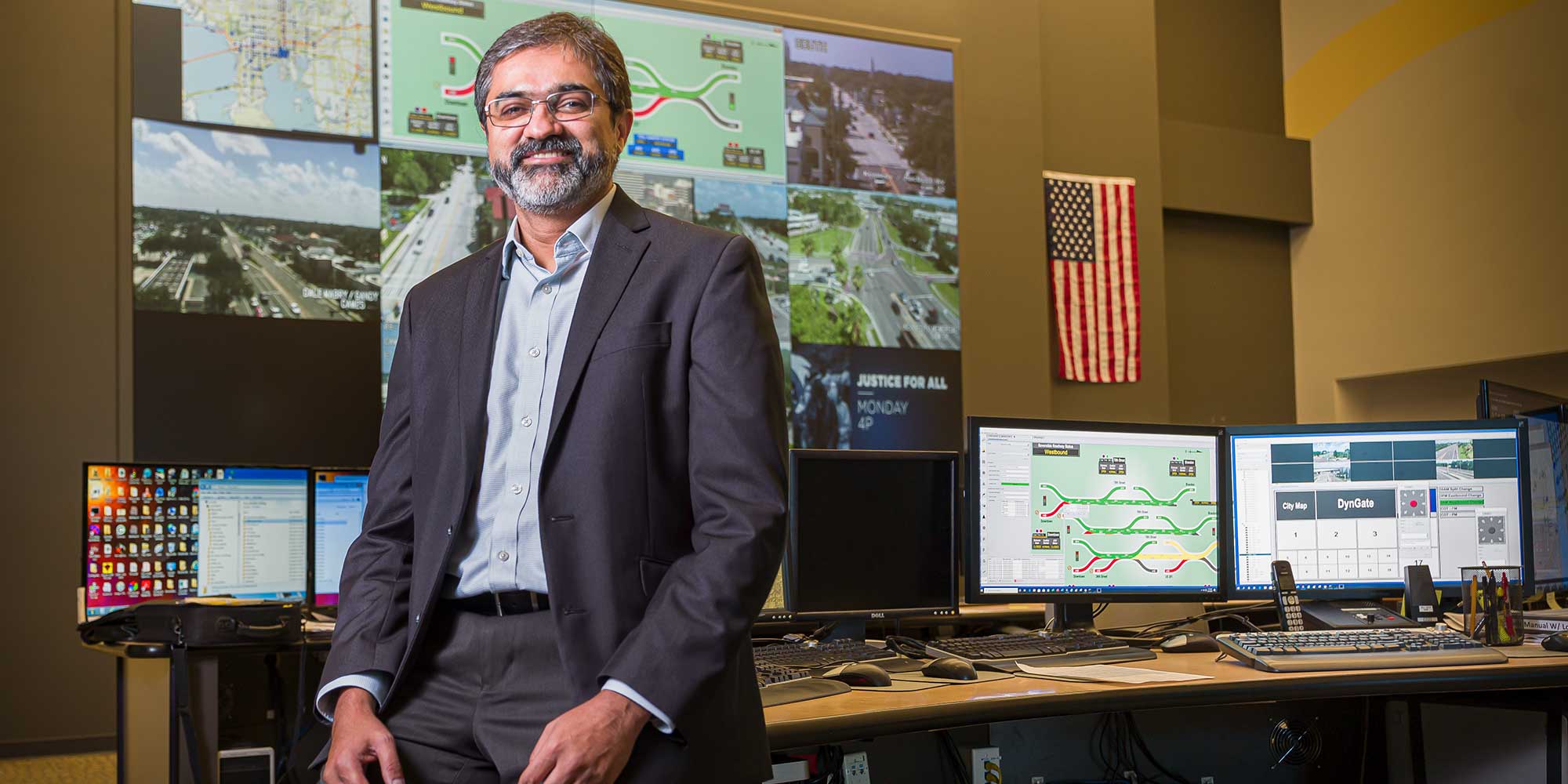
Among Smart Mobility’s recent pilot projects were a year-long shared electric scooter trial program and a project to power transportation infrastructure via sidewalk-mounted solar panels.
Other local initiatives are considerably loftier. In July, the Tampa Bay Area Regional Transit Authority announced it would move forward in discussions with Lilium, a German-based air taxi company, as part of a $1 million initiative to explore innovative transportation methods to serve the area. The potential Lilium partnership, which the company said could launch in 2025, would provide air taxi service from Tampa to St. Petersburg.
For now, one of the biggest challenges for Tampa may be sustaining the growth of its tech scene. Companies will likely have to reach across the region and forge partnerships with industry leaders and newcomers in cities like St. Pete, Clearwater and Sarasota. For Synapse’s Lauren Prager, regional collaboration will be key to Tampa’s success.
“Tampa Bay is electric right now with opportunity and optimism,” she says. “This is the right time for companies and organizations to work together to support innovation in our own backyard.


